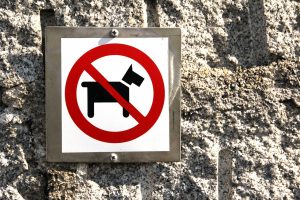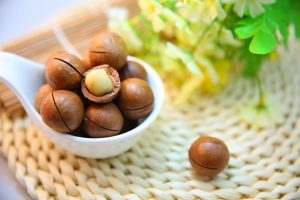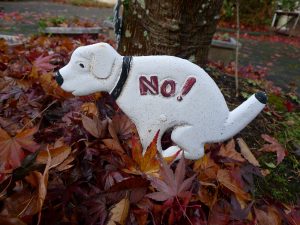Tips on Human Foods Dogs Can Have
We want the best for our furbabies. So which human foods can your dog have? These tips will help you narrow down your list of acceptable options. Some foods are off limits based on your dog’s health and if the foods are harmful to dogs. Other foods have high nutritional value or are beneficial for specific health conditions. Find out more in the video and in the article below!
Photo and music credits ~
https://pixabay.com/
“Train Tracks” by Marmoset

Dogs prohibited.
Create a list of foods he CANNOT have.
Form the list from your veterinarian’s recommendations, your own research, and also your experiences with your furpal. Here are some tips to get you started:
Xylitol, alcohol, and caffeine are definitely no-nos!
Xylitol is a sugar substitute that is highly toxic to dogs. Some nut butter brands contain Xylitol, so please check the ingredients before feeding any to your dog! Wine, wine coolers, beer, cocktails, basically anything with alcohol are made with ingredients such as hops and grapes, which are toxic to dogs.
If your dog sneakily takes a sip from your unattended coffee, please don’t fret. Such a tiny amount is harmless. However, large doses can cause:
- vomiting
- diarrhea
- difficulty breathing
- tremors
Caffeine affects the heart and the nervous system so it is a good idea to keep him away from energy drinks, tea, sodas, and other caffeinated beverages. Similarly, chocolate and some medications should absolutely be avoided. Be careful when you are consuming these products, especially if you have a pooch that goes into vacuum mode whenever anything edible hits the floor.
All seeds and pits.
A couple of apple or pear seeds may just pass through his system, but keep in mind these seeds contain cyanide. So make sure to toss the seeds and the core (which can cause gastrointestinal obstruction) and give your pet a few slices of just the fruit.
Cherry, peaches, apricots, plums, persimmons, and other fruits have large seeds surrounded by a hard shell, otherwise known as the pit. Like apple and pear seeds, pits contain cyanide and at greater amounts due to the size. Also because of the size, they have a greater chance of causing gastrointestinal obstruction.

No to nuts.
Nuts
Nuts can cause stomach upset through obstruction or contain toxins that can harm your pal. Walnuts can cause seizures and macadamia nuts are especially harmful causing weakness, depression, vomiting, tremors, and hyperthermia (having a body temperature greatly above normal).
Onions, Garlic, Ginger, Chives, and Leeks
From GI irritation to red blood cell damage, these foods also have the added clandestine nature of delayed onset. In other words, ticking time bombs. The following signs may take several days to show:
- abdominal pain
- vomiting
- diarrhea
- lethargy
- fast heart rate
- fast breathing
- anemia (low levels of red blood cells)
- paleness
- icterus (yellowing of the skin, gums or whites of the eyes)
If caught early, care and detoxification are treatments. If your dog is in the later stages, oxygen therapy and blood transfusions may be in order. But never wait that long! As soon as signs show, or even if you suspect your friend has swallowed up your burger with extra onions, contact your veterinarian and get your friend the help he needs right away!
Fruits
I mentioned before that grapes and raisins are toxic to dogs. They can cause severe liver damage and kidney failure. Unlike other foods where just a little bit will just pass through, grapes and raisins must be avoided. Hops is the ingredient in beer that can cause increased heart rate, panting, fever, seizures, and possibly death. Hops is not a fruit, but they are noted here in conjunction with grapes and raisins since they were mentioned earlier.
There are articles and blog posts claiming that some avocado will not harm a dog, but it would be wise to be prudent. The fruit (yes, it is technically a fruit, just like tomatoes and pumpkins), contains Persin which can cause diarrhea, vomiting, and heart congestion.
Even for safe fruits, only give them as a treat and in moderation. Too much will lead to gas and diarrhea.

Let’s protect our dogs from the discomfort excess gas and diarrhea causes.
Spices
Nutmeg, cinnamon, paprika, turmeric, and other spices are only problematic in large amounts. Liver damage, GI and skin irritation, anemia, and vomiting are just some of the adverse affects if your friend consumes too much.
You know your dog best and your dog knows what he does and does not like. But there are times he will react badly to certain foods.
Allergies
Dogs are more like us than what some people think. Dust, pollen, mold, and cigarette smoke are just a few things that trigger our allergies. The same goes for dogs. There are also certain foods that your friend cannot have because they will trigger the same allergy symptoms that we feel. Itchy or red skin, runny eyes, sneezing, or worse, (as akin to food poisoning – stuff coming out of both ends!)
So even if a human food is considered ‘safe’ for dogs, introduce the new food slowly and monitor his reactions carefully. If he displays any allergy-related symptoms, stop feeding him the food immediately!
Health Conditions
Certain health conditions will also mark certain human foods off his list of edibles. Diabetes usually means no fruits because of the high sugar content, while kidney disease means managing the amount of his protein intake.
If you are unsure if a human food is okay for your furfriend, I highly recommend the site Can I Give My Dog…? to check.
Here are some more helpful tips:
- Too much of a good thing can be bad, so give safe human foods in moderation.
- For the human foods dogs can eat, double check with your vet on the safe amount.
- Don’t feed your pal too much or it could lead to diarrhea.
- Introduce new foods to your dog slowly.
- Monitor his reactions carefully.
Consultation with your veterinarian on the best diet for your dog is the key to a long, healthy, and happy life.
For more information:
Allergy Alert: Recognizing Canine Allergies – [Infographic]
Note: This article is for information purposes only and is not intended for medical advice. Please consult your veterinarian on your dog’s health needs.
